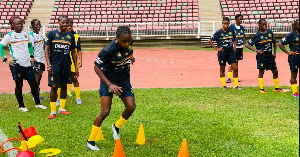To his mother, Amy, the three years since Jonathan Hollingsworth returned from an ill-fated mission trip to Africa might as well be a decade.
Gone is the idealistic and angst-filled teenager hell-bent on saving the world. In his place is a 23-year-old adult with a calm confidence she could not have imagined so very long ago.
“That’s a lot of growth in a short amount of time,” Amy says from her perch on the edge of a couch in her Spotsylvania County living room.
The transformation did not come easily. In fact, it might not have come at all if not for mother and son’s mutual decision to co-author a book about the faith-shaking journey that got him there.
“Runaway Radical: A Young Man’s Reckless Journey to Save the World,” released this week, tells the story of how Jonathan’s desire to do good went terribly wrong—and how he ultimately overcame it.
Before he left home in 2012 at age 20, Jonathan, the son of a preacher, had heard stories about the miraculous things that happen when you choose to give of yourself completely in the service of God. It never occurred to him there was any other outcome. So when Jonathan had a bad experience, he figured it was a personal failing. That false belief nearly wrecked him.
He and Amy hope “Runaway Radical” might spare others from the same perilous path.
COMPELLED TO HELP
Jonathan’s compassion for people in need dates to early childhood. His mother remembers how he emptied his piggy bank after watching a commercial on television about sponsoring a child overseas. He was no older than 5, she says.
What Jonathan remembers about those commercials is that they kept coming despite his efforts.
“Growing up, I never saw any results,” he says. “I felt like I needed to do something. I wanted to do something.”
As Jonathan got older, he became emotionally invested in the problems of friends. He bought warm meals for homeless people he saw begging at busy intersections, gave them rides, asked them to dine with him. He gave away most of his possessions, including his bed, and took to sleeping on the floor of his closet.
But it was not enough.
At 19, Jonathan went on a mission trip to Honduras, in Central America, hoping he might at last make a tangible difference. But the trip seemed more about sightseeing and snapping photographs than helping.
Africa, he says, was supposed to be a way “to redeem those instances where I wasn’t doing any good at all.”
An April 15, 2012, story in The Free Lance–Star profiled his upcoming trip—and his excitement and hopes for it.
As a missionary in Africa, he would be an agent of God. He would teach guitar to children with instruments donated to his cause. He would help build a bakery to benefit orphans and pitch in wherever else he was needed. Never mind that Jonathan, was, in his own words, a mediocre guitarist with no experience in construction. His real gifts lay elsewhere—in writing, for instance.
“I thought I had to go to Africa to help in more obvious ways,” he says. “It came from the idea that you have to go where the world needs you most.”
He says he’s like many in the idealistic, hyper-informed millennial generation—driven by a desire to right the wrongs of the world with a crippling fear of falling short. Compounding that burden, for Jonathan at least, were the best-selling books he read by Christian authors who offered an antidote: radical obedience. Do more, give more, be more.
“I wanted to be a real Christian, to sacrifice and give everything up,” he says.
Amy had not realized it yet, but her son’s desire to help had gone, as she put it, “from internal to external, from love to guilt, from freedom to bondage.”
Africa turned out to be nothing more than a placebo, a false promise that nearly shattered his faith. He knew within a week that all was not as it seemed, but would remain for four unbearable months. To leave, he thought, was to let down all those who helped him get there. To leave was let down God.
He would teach only a handful of guitar lessons; the donated instruments would never reach the children for whom they were intended. The bakery would not be built.
In “Runaway Radical,” he describes feeling as if he were under house arrest; what he’d gone to Cameroon to accomplish had fallen through, and he was forbidden to work with any other charitable organizations nearby.
When he finally made the decision to go, he was stripped of the plane ticket he purchased with donor money. It would take third-party intervention to get him home.
A SHADOW OF HIMSELF
The son who came home was not the same son who had left, says Amy. Jonathan had shed 30 pounds from his already slender frame. He was brooding and argumentative, slept for hours on end and would ultimately be diagnosed with clinical depression.
Amy, the author of four other books, was in the midst of writing a fifth. But the narrative of Africa kept creeping in. Perhaps, she thought, that was the book she was supposed to write—with Jonathan.
She walked into his room at noon on a December day in 2012 and told him they ought to co-author a book about his experience in Africa. Jonathan had been home for nearly as long as he’d been away.
He was half asleep and later thought he’d dreamed the brief exchange. But it was real. Amy had already begun jotting notes on a legal pad.
He had no notes. He’d deleted the blog he intended to keep during his year in Cameroon.
“I couldn’t bring myself to write down or look at anything that happened,” he says.
He began anew.
After two months, they began sending book proposals to publishers who wanted to know how their story ended.
They would not know for a year—the length of time it took them to finish “Runaway Radical.”
This time, the results are tangible. It is in the easy way Jonathan carries himself now that he has come to understand that God does not love people less when they fail and, just as importantly, doesn’t love them any more when they succeed.
It is in Amy’s resolve to share their story so that other parents might recognize in their children what for a time she overlooked.
“He could never do enough. He could never sacrifice enough,” she explains. “Because of that, he was doomed to failure.”
It is in their shared message that you should never be afraid to share your story, no matter how it ends.
It is in the dozens of messages from readers of “Runaway Radical” who now feel free to do just that.
Opinions of Saturday, 28 February 2015
Auteur: cameroonjournal.com















